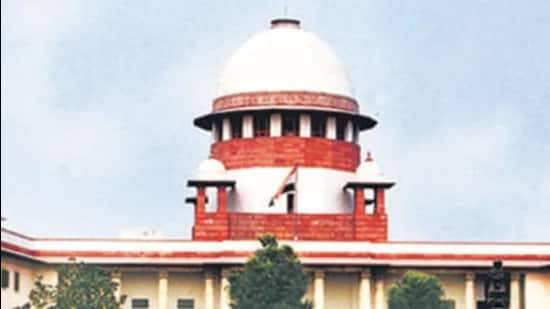




NEW DELHI: Determination of 'creamy layer’ from backward classes for denying quota benefits in admissions and government employment cannot be done “solely on the basis of economic criterion”, the Supreme Court Tuesday said.
The top court quashed the Haryana government notification of August 17, 2016 specifying the criteria for exclusion of ‘creamy layer’ within the backward classes by saying that it was in “flagrant violation of the directions issued by this court in Indra Sawhney-I”, also known as the Mandal judgement.
As per the notification, the members of backward classes “having gross annual income up to Rs. 3 lakh shall first of all get the benefit of reservation in services and admission in educational institutions.” It also provided that the left-out quota shall go to that class of backward classes of citizens who earn more than Rs. 3 lakh but up to Rs. 6 lakh per annum and those earning above Rs. 6 lakh per annum shall be considered as ‘creamy layer’ under the state law.
While striking down the notification, a bench headed by Justice L Nageswara Rao said that “Admissions to educational institutions and appointment to state services on the basis of the notifications ... shall not be disturbed.” The bench, which also comprised Justice Aniruddha Bose, said that the fact that notification was issued on the basis of economic criteria only and this alone was the sufficient ground for setting it aside.
“In spite of Section 5(2) of the 2016 Act (the Haryana Backward Classes (Reservation in Services and Admission in Educational Institutions) Act, 2016) making it mandatory for identification and exclusion of ‘creamy layer’ to be on the basis of social, economic and other relevant factors, the State of Haryana has sought to determine 'creamy layer’ from backward classes solely on the basis of economic criterion and has committed a grave error in doing so,” Justice Rao wrote in the judgement.
“Therefore, we quash the notification ..., giving liberty to the State Government to issue a fresh notification within a period of 3 months from today after taking into account the principles laid down by this Court in Indra Sawhney-I and the criteria mentioned in Section 5(2) of the 2016 Act for determining ‘creamy layer’,” said Justice Rao who wrote the judgement for the bench.
Referring extensively from the Mandal judgements, the verdict said that the determination of 'creamy layer’ in backward classes cannot be done “solely on the basis of economic criterion” and social, economic and other relevant factors have to be taken note of as well.
“The criteria mentioned for identifying such persons who are socially advanced have not been taken into account by the Government of Haryana while issuing the notification,” it held.
The verdict came on a batch of appeals including the one filed by ‘Pichra Warg Kalyan Mahasabha Haryana seeking quashing of two notifications issued by the state government on August 17, 2016 and August 28, 2018 on various grounds including the violation of right to equality under the Constitution.
Following the famous Mandal verdict, Centre and the states were asked to set up a permanent body to deal with the inclusion, under-inclusion and over-inclusion of groups in the lists of other backward classes of citizens.
Later, the Haryana government came out with the notifications laying down economic criteria for exclusion of creamy layer.
By the second notification, the state fixed the criteria for computing annual income and said that it would be based on ‘gross annual income’, which shall include income from all sources.